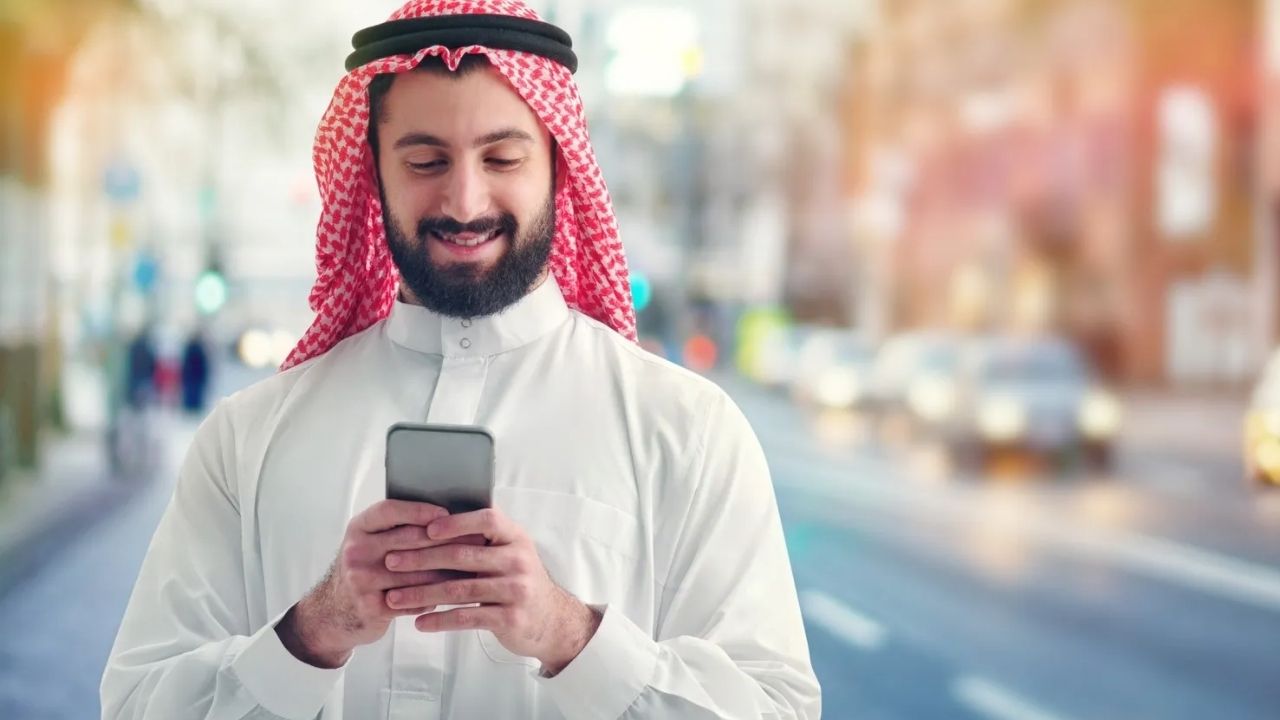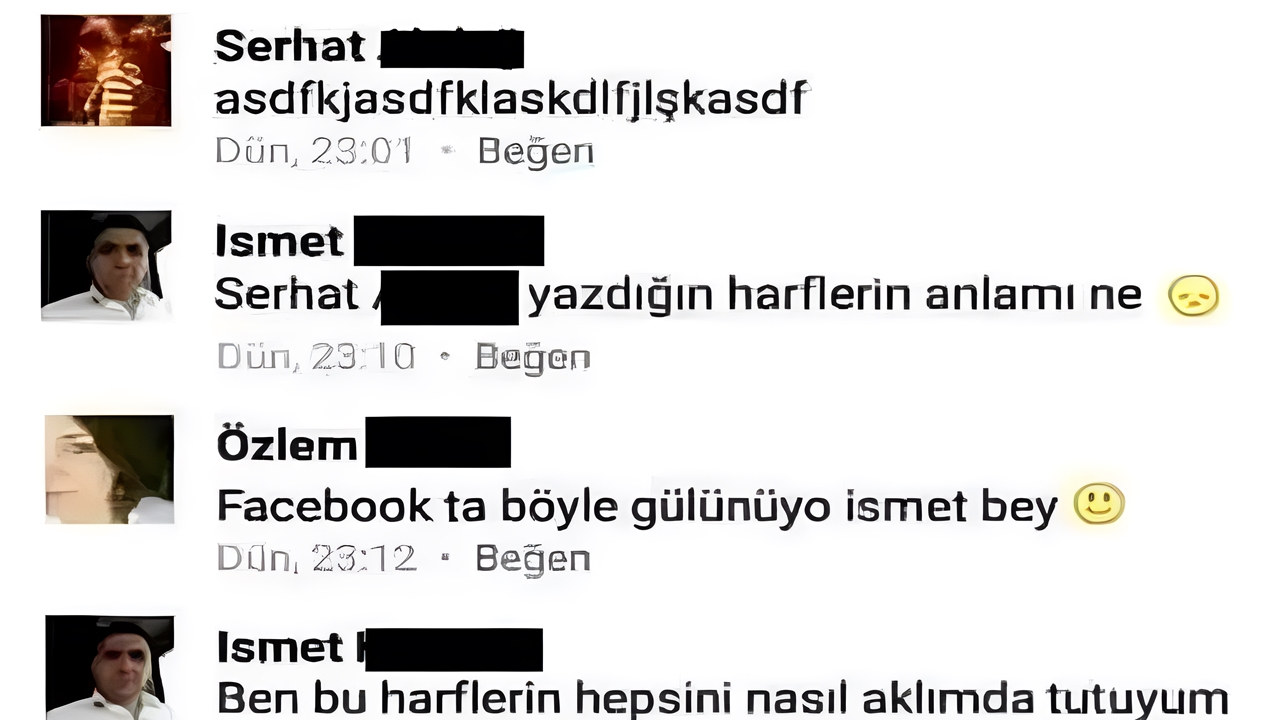Just like the spoken languages of the countries, the “laughing” languages are also different from each other. So which random smiles are thrown in which country?
“I laughed” to express having fun or finding something funny on social media and messaging apps. we do not write. For this, either emojis or Expressions suitable for our local spelling language that show that we are laughing we use
These expressions are actually It differs according to the language of each country.. These differences are sometimes due to the pronunciation of letters or numbers in their own language, and sometimes “I laughed out loud.” This is because they use abbreviations instead of saying. Let’s take a closer look at which country the laughs we encounter on social media belong to and what they mean.
LOL, LMAO and ROFL
Mainly English These are the laughing expressions that we encounter most on social media because they are used by people who speak. Although these expressions don’t make any sense, they are used by English speakers as the shortest way to express their laughter.
“LOL” stands for “laugh out loud”. When we translate it to Turkish “I laughed out loud” It means. The expression “LMAO” is also an abbreviation for “laughing my ass of”. If we want to translate this expression into Turkish in a polite way, “I laughed with my butt.” We can translate it. The phrase “ROFL” is also an abbreviation for “rolling on floor laughing”. It means “rolling on the ground laughing” in Turkish.
LWKMD and DWL

Pidgin, that is, the collection created by mixing the two languages, which has a language in Nigeria These terms used are actually abbreviations. “LWKMD” stands for “laugh wan kill me die”. This expression is “laughing to death” when describing a funny event. used literally.
who have a pidgin language like Nigeria Jamaica while laughing by writing “DWL” on social media. This expression, which is a shortened version of “dead laugh wild”, means “to die with laughter” or “to die from excessive laughing”.
MDR AND PTDR

French MDR is an abbreviation for “mort de rire”. Its Turkish equivalent is “to die of laughter”. PTDR is short for “pété de rire”, “I burst out laughing.” used meaning.
RSRSRSRSR

Portuguese The term “RSRSRSRS”, which is used by speakers in messaging, is actually a shortened version of the Portuguese verb “riso”, that is, “to laugh”.
55555

Although it seems like it was written for the manifest at first glance, Thais they laugh like this in the messaging language. This is because the number 5 is read with the “Ha” sound in their own language. So saying 555 “hahaha” is laughing. They also write “555+” to express that they laughed a lot at something.
Additional

indians they use the expression “attachment” to show that they are laughing while texting. Because in Hindi, “additional” is the pronunciation of “one”. In other words, by typing “addition” to the joke you made, “joke number one.” they mean.
Also laugh in written language in India by gender differs. Men write “hahaha” and women laugh by typing “hehehe”.
ههههههههه

This expression, which looks like a flower pattern, is one of the most spoken languages in the world. in arabic It means “hahaha”.
jajaja

Spaniards They decided to say “jajaja” instead of “hahaha”. Because they don’t read the letter “H” in a different way, but they read the letter “J” like “H”…
kkkk

If this smile is like a giggle to Korea belonging Even though they read the letter “K” as “Ka”, they are giving a complete chuckle by reading “kkkk” as “giggle”.
xaxaxaxa

in Slavic languages Since the letter “X” is pronounced with the “H” sound, people who speak Russian and Bulgarian use this expression to express their laughter on social media. Although it does not belong to the Slavic language family, our neighbor Greece He also uses this term frequently.
ﺥﺥﺥﺥﺥ

This expression, which looks like the letter “J” by us Turks, is colloquial. Persian belonging to Iran. In fact, “ﺥ” is a letter that corresponds to the “KH” sound in the Latin alphabet and is a method they use to express their laughter like “hahaha” because it is pronounced with the “Ha” sound in Persian.
hihihihi

If this is the kindest and sweetest way to laugh to Iceland belonging
Haehaeha

This expression is colloquial Danish belonging to Denmark. Danish is one of the most difficult languages to learn, as the letter “æ” is sometimes pronounced with the sound of “Skew” and sometimes “A”. So when a Dane writes you “Hæhæ”, we don’t know if he’s saying “Hehehe” or “Hahaha”, but he’s definitely laughing.
wwwwww

This expression, which resembles the first signature attempts of most of us, is in japanese Abbreviation of “warai”, the verb “to laugh”. In addition, instead of writing “www” at the end of their sentences, they sometimes write “grass” because it looks like grass. Even though it distorts the meaning of the sentence, we think there is no problem as long as they agree.
Bonus: asdasfsdjfsfljff

After examining all the smile expressions, we are the most sincere and comforting laugh. to the Turks We came to the conclusion that he belonged.
RELATED NEWS
What Does ‘Random Throwing’ Into Our Lives With Social Media Actually Mean and Why Do We Do It Constantly?
RELATED NEWS
Words Transferred from Turkish to Foreign Languages: Not Just Food Names
RELATED NEWS
